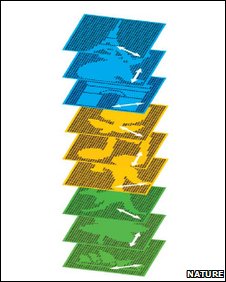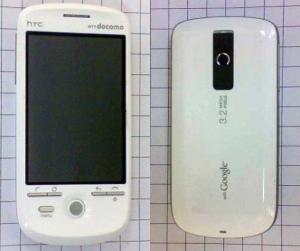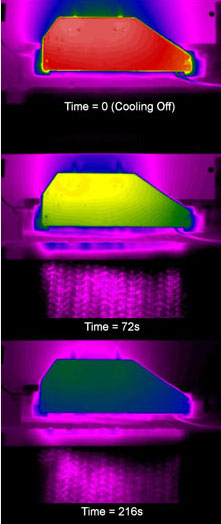Wikipedia.org has just announced the biggest ban in its history in an effort to stop exploitation of its online resources. The scammers sect Church of Scientology has been “excommunicated” from the site, so to speak, with all IP addresses owned or operated by the Church of Scientology and its associate banned from making contributions.
via DailyTech – Wikipedia Bans All Scientology IPs from Editing.

According to a study by the U.S. Geological Survey, earlier estimates which placed untapped Arctic oil reserves at as much as 90 billion barrels actually fell short — the Arctic may in fact hold as many as 160 billion barrels of oil.
via DailyTech – Study: Melting Arctic Likely Holds up to 160 Billion Barrels of Oil.


State-of-the-art fruit and vegetable lab unveiled › Japan Today: Japan News and Discussion.
TOKYO —
A state-of-the-art laboratory to grow vegetables and fruit using advanced technologies was shown to the press Tuesday in a lobby of the Ministry of Economy, Trade and Industry. Ministry officials said people can harvest lettuce and tomatoes throughout the year by controlling the temperature and the amount of light provided by light-emitting diodes in the 12-square-meter lab.
The laboratory developed by Espec Mic Corp in Aichi Prefecture can also control humidity and the amount of carbon dioxide, which is necessary for photosynthesis, they said. The government believes such labs could be installed in locations such as vacant stores, although they are more costly than plastic greenhouses, the officials said.
Major update:
# New in 1.5: GIF support fixed, auto-resize options, paste from clipboard, uploads log.
http://techsuki.net/tinypic-uploader/
DailyTech – New Procedure Uses Stem Cells for Breast Augmentation.
Stem cell breast augmentation to be available in six month says researcher
Scientists in the UK are working on a new process for treating women with breast deformities caused from cancer treatment that uses stem cells taken from their own bodies. The process takes stem cells from fat located around the woman’s stomach or thighs using specialized equipment. The stem cells than can then be mixed with another batch of fat from the patient before being injected into the breasts.
The researchers claim that it can take several months before the breast achieves the desired shape and size. Researcher Professor Kefah Mokbel from the London Breast Institute said. “This is a very exciting advance in breast surgery. They [breasts treated with stem cells] feel more natural because this tissue has the same softness as the rest of the breast. Implants are a foreign body. They are associated with long-term complications and require replacement. They can also leak and cause scarring.”
BBC NEWS | Science & Environment | How to fit 300 DVDs on one disc.
A new optical recording method could pave the way for data discs with 300 times the storage capacity of standard DVDs, Nature journal reports.
The researchers say this could see a whopping 1.6 terabytes of information fit on a DVD-sized disc.
They describe their method as “five-dimensional” optical recording and say it could be commercialised.

ROUND-THE-JAPAN TRIP.
This is cool, check it out. These guys build their own house in a truck and went all around Japan with it. Lots of pics in their site (click above)



DailyTech – Former Astronaut Says Aliens Exist; Accuses Government of Conspiracy.
One of the few men to ever walk on the moon, Edgar Mitchell, believes humans are not alone
Former NASA astronaut Edgar Mitchell — who was involved in Apollo 14 moon mission in 1971 — has come forward and again stated his belief that humans are not the only living things in the universe.
DailyTech – Tiny Invisibility Cloak Constructed.
The journal Nature Materials reported on the development, which was constructed based on a carpet-like design theory first described by Professor John Pendry, from Imperial College London, in 2008. Teams involved in its current production included Michal Lipson and her team at Cornell University and Xiang Zhang, along with his team at University of California, Berkeley.
Hosting a design that allows it to eliminate distortion from the shape of anything underneath it, the cloak enables light to bend around it, which creates the illusion of a flattened surface.
A silicon sheet measuring a few thousandths of a millimeter across and containing multiple miniature holes makes up the cloak, which “changes the local density” of the item placed beneath it, according to Professor Zhang.
“When light passes from air into water it will be bent, because the optical density, or refraction index, of the water is different to air,” Professor Zhang explained. “So by manipulating the optical density of an object, you can transform the light path from a straight line to any path you want.”

DailyTech – NTT DoCoMo Unveils Japan’s First Google Android Phone.
The HT-03A which comes in white or black, features a 3.2 inch touchscreen, 3.2 megapixel camera, microSD card slot, and weighs 123 grams. The phone will be able to download applications from the Android Market service using its wireless capabilities which include 802.11 b/g. Other wireless capabilities include Bluetooth, and GPS. Similar to the iPhone the HT-03A will lack high end features found in other Japanese cell phones such as 1-Seg TV broadcasts and the ability to pay for purchases using a cell phone.

Breakthrough device represents major improvement over past efforts
via DailyTech – Scientists Simplify Cloaking Tech, Can Cloak Bigger Objects.
Cloaking science or “transformation optics” as its more formally called has until now relied on exotic “metamaterials” to redirect light. However, a breakthrough from Purdue University has created a “tapered optical waveguide” that accomplishes the same behavior at a lower cost and without using exotic compounds.
The new cloak is not only cheaper, it also performs better — it can cloak an area of up to 100 times the wavelengths of a laser, while previous designs only managed a few times the wavelengths. Additionally, where metamaterials could only cloak part of the spectrum, this design can cloak light from a variety of wavelengths.


DailyTech – Researchers Using Ionic Wind to Cool Notebooks.
Ionic cooling technology expected to be commercialized next year

DailyTech – Researchers Use Nanowires to Turn Blood Flow into Electricity.
A group of researchers from the Georgia Institute of Technology has announced a new breakthrough that could one day provide power to cell phones and other electronics devices by generating electricity from blood flow in the body.
The researchers have devised a method that allows the generation of energy by converting low-frequency vibrations from body movement, heartbeat, blood flow, and the wind into electricity. The discovery uses zinc oxide nanowires that generate electricity when subjected to mechanical stress.
The nanowires are very small at about 1/5,000th of the diameter of a human hair and about 1/25th of the length of a human hair. According to researcher Zhong Lin Wang from the Georgia Institute of Technology, the nanowires can be grown on materials like metals, ceramics, polymers, and clothing.
DailyTech – Batteries Made Entirely From Liquids Could Store Massive Amounts of Energy.
A group of researchers from MIT is working on a method of designing large, eco-friendly, stationary batteries that are made entirely from liquid metal and would be capable of storing enormous amounts of power.
The liquid batteries are being eyed as potential storage mediums for power generated by wind farms or solar cells and may one day serve as backup power systems for hospitals. Hospitals today relay on massive generators for power in emergencies.
One of the MIT researchers, Don Sadoway, said, “Since these batteries won’t be in someone’s hand or in a car, we don’t have to make them crash-worthy, idiot-proof, and it doesn’t have to operate at around body temperature.”
The battery Sadoway and his team have developed has no solid materials in them from the electrodes, membranes and any other parts of the battery. The anode, cathode, and membrane of the battery designed by the team are all made from molten liquids.
The team has tried many different combinations of liquids over the years in the battery. One of the first liquid metal combinations tried was molten antimony and magnesium with sodium sulfide between the two to store energy.













Recent Comments